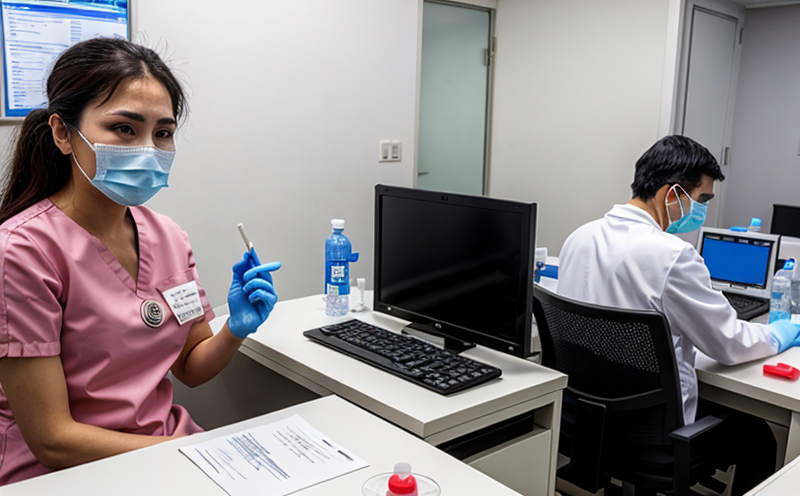Vaccinia Virus Serological Testing in Livestock Models
Understanding and managing viral infections in livestock is a critical aspect of modern veterinary medicine. Vaccinia virus serological testing plays an essential role in this context, enabling the identification of immune responses to vaccination or natural infection. This service offers comprehensive evaluation of antibody levels against vaccinia virus in various livestock species, providing valuable insights into immunity status.
The process involves collecting blood samples from livestock and performing a series of standardized tests using serological methods such as ELISA (Enzyme-Linked Immunosorbent Assay) or IFA (Indirect Fluorescent Antibody). These techniques measure the presence and quantity of specific antibodies in the serum, which reflect past exposure to the virus.
For effective testing, it's crucial to follow precise specimen preparation protocols. This includes ensuring that blood samples are collected aseptically, separated from cellular components promptly, and stored at appropriate temperatures until analysis. The choice of livestock species impacts test outcomes; therefore, understanding typical ranges within different breeds aids accurate interpretation.
Instrumentation used for these tests typically comprises specialized ELISA plates or IFA slides, along with reagents necessary for detecting antibodies against vaccinia virus antigens. Standard operating procedures (SOPs) ensure consistent results across multiple samples and batches.
The significance of this testing extends beyond mere detection; it also helps in assessing the effectiveness of vaccination programs, identifying potential outbreaks early, and tailoring preventive measures accordingly. By monitoring antibody titers over time, researchers can evaluate herd immunity levels and inform decisions about booster shots or alternative vaccine strategies.
A notable application lies in evaluating cross-reactivity between vaccinia virus strains used for different purposes like smallpox vaccines versus livestock applications. Such knowledge supports the development of safer and more effective veterinary products tailored specifically for agricultural needs.
Moreover, this service contributes significantly to public health by providing data on zoonotic risks associated with handling infected animals. It assists regulatory bodies in setting safety standards while promoting responsible animal husbandry practices among farmers.
Quality and Reliability Assurance
- Accreditation: Our laboratory adheres to international standards including ISO 17025 for proficiency testing, ensuring robust quality assurance processes.
- Calibration: All analytical instruments undergo regular calibration against reference materials, maintaining precision and accuracy.
- Data Verification: Results are cross-validated through multiple independent analyses to confirm reliability.
Customer Impact and Satisfaction
We strive to deliver accurate, timely results that help our clients make informed decisions regarding their livestock's health and welfare. Our services contribute directly to enhanced animal care practices, reduced risk of disease spread, and improved overall productivity in the agricultural sector.
Environmental and Sustainability Contributions
Incorporating advanced testing technologies minimizes waste generation and promotes efficient resource utilization. By providing precise information on immunity status, we enable targeted interventions that prevent unnecessary treatments, thereby reducing antibiotic usage and supporting sustainable farming practices.





